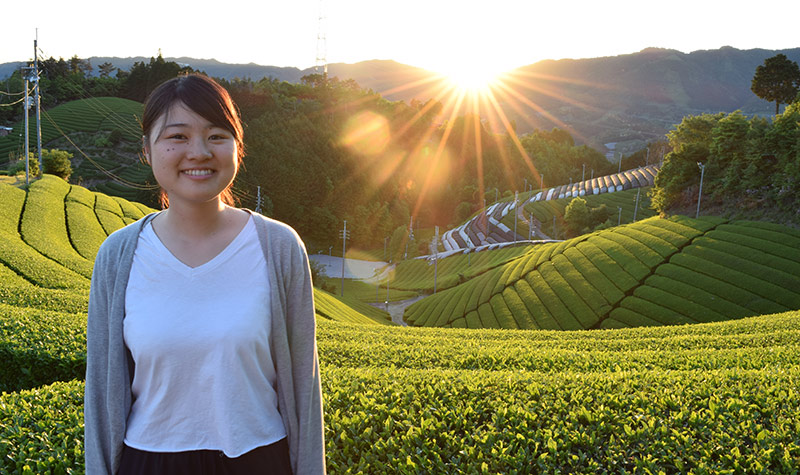UNB hospitality and tourism professor is leading expert on tea tourism research
Author: UNB Newsroom
Posted on Jan 10, 2019
Category: UNB Saint John

When Dr. Jolliffe interviewed for a position with the University of New Brunswick’s faculty of business in Saint John in 2000, she was asked about her research activities and how they might fit in with the research goals of the faculty. As former operator of Mrs. Proffit’s Tea Room in Victoria-by-the-Sea on PEI, and a museum studies scholar, Dr. Jolliffe was intrigued by Saint John’s historical connections to Red Rose Tea and Barbours.
“To me, UNB was the ideal place to establish my research roots on tea and tourism,” says Dr. Jolliffe, now a professor of hospitality and tourism.
“New Brunswick, and Saint John specifically, has such a deep history with tea. Red Rose began blending and packing teas on Dock Street in 1894, and Barbours introduced King Cole Tea in 1910. Saint John is an international port city; as such, the city gives hospitality and tourism researchers endless opportunities to mentor students on various experiential projects.”
Recently, Dr. Jolliffe completed a hands-on project with Moe Nakashima, an agricultural undergraduate student from Kochi University, Japan. In their study, they observed how tea-related tourism has emerged in Japan’s tea villages and how it could potentially be a viable form of responsible rural tourism. Chris Beardsworth, director of UNB’s International Recruitment Centre, facilitated the match between Dr. Jolliffe and Ms. Nakashima.
“Moe Nakashima’s work at UNB with Dr. Jolliffe is a fine example of the unique experiential learning opportunities UNB is able to provide our international students,” says Mr. Beardsworth.
“During her studies in Japan, Moe became interested in tea tourism and she happened to find my book, Tea and Tourism Tourists, Traditions and Transformations, published by Channel View Publications in 2007,” says Dr. Jolliffe.
Coincidentally, Mr. Beardsworth visited Kochi University as part of UNB’s recruitment activities and the rest happened organically.
“Next thing we knew, Moe was travelling to Malaysia to brush up on her English, and then she flew to Canada to begin an independent study on tea tourism with me,” says Dr. Jolliffe.
“Tea tourism attracts people who are interested in learning about the culture and history of tea, mainly within rural areas. With declining and aging populations in international tea villages, tea tourism offers a means for preserving local culture, while providing potential for economic growth within these areas. There are, of course, some challenges. Our Japanese case studies provide some insights on these issues.”
Tea in Japan is typically grown and processed between May and October and tea-related tourism often picks up around this time. Activities include tastings, field tours, festivals, homestays and other tea-related activities.
As part of her studies at UNB, Ms. Nakashima also gave a tea demonstration at Barbours General Store in Saint John. Unique experiences like these counted toward her credit requirements for the independent study course. At the end of the course they proposed a book chapter on tourism in Japan’s rural tea villages.
Dr. Jolliffe and Ms. Nakashima’s chapter, “Responsible Rural Tourism in Japan’s Tea Villages,” is in press in Responsible Rural Tourism in Asia, to be published by Channel View Publications in 2019.
After Ms. Nakashima completed her term in Canada, she and Dr. Jolliffe were able to travel to Japan to complete fieldwork for the chapter. This included participant observations during a tea tour and an internship, as well as interviews with tea farmers and community stakeholders.
“I had an amazing experience working with Professor Jolliffe; my independent study on tea tourism was very hands-on. Once I completed my course at UNB, I left with a clearer picture of what I wanted to do with my career in tea. After graduation, I will be working full-time at Kyoto Obobu Tea Farms in Wazuka, Japan—one of the villages that we profiled in our case studies.”
Media contact: Angie Deveau
Photo: Moe Nakashima in front of tea fields in Wazuka, Japan. Credit: Kate Popham.
